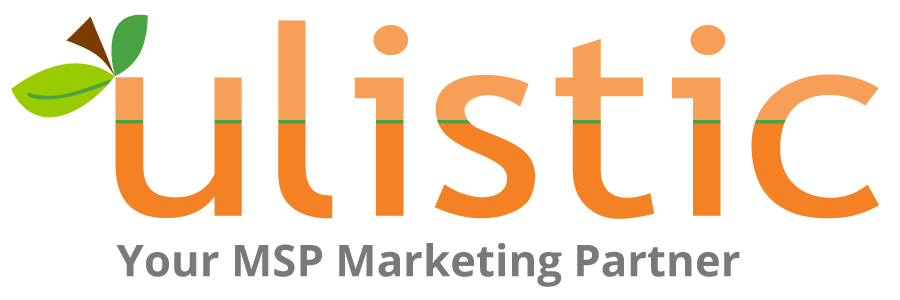Google Helpful Content Update
Key Points:
- Google wants to devalue thin, useless content and improve everything else's quality.
- This change is being made to improve users' experience and keep them returning to Google.
- MSPs should focus on creating high-quality, in-depth content that is truly helpful to their audience.
On August 18, 2022, Google announced that over the next few weeks, it would be rolling out new search updates that will significantly change how people find information online. These changes aim to make search more helpful and efficient for everyone. With this update, Google will majorly change how content is indexed and ranked.
These changes are designed to help people find the most relevant and helpful content more easily and quickly. This update is expected to improve results related to "online education, as well as arts and entertainment, shopping and tech-related content."
What Do We Know About the Google Helpful Content Update?
The new update is called the "helpful content update, " designed to help surface more "helpful" and informative content in the search results. This is similar to the "quality update" that Google rolled out in 2015, which was designed to surface more high-quality content in the search results.
While you may think that Google could gauge whether a piece of content is helpful or not by looking at things like time on page, bounce rate, and other metrics, it's much more complicated than that. Google doesn't use any engagement metrics to determine whether a piece of content is helpful or not. So, if Google isn't looking at engagement metrics to determine whether a piece of content is helpful or not, what are they looking at?
Google looks at a "variety of signals" to determine whether a piece of content is helpful or not. Here are some potential signals that Google could be used to determine whether a piece of content is helpful or not:
- Whether the content answers the user's query
- Whether the content is comprehensive and covers all aspects of the topic
- Whether the content is up-to-date
- Whether the content includes images, videos, or other rich media
What Does This Update Mean for MSP SEO?
This is big news for SEO, meaning that the landscape of SEO is about to change dramatically. Google has always provided the best possible user experience, and this update is no different. This update will redefine how Google ranks content and place a much greater emphasis on usefulness and intent. That means that MSPs focused on providing helpful, relevant, and useful content will be in a much better position to succeed in the new SEO landscape.
Here are some of the key changes that will be implemented:
- Google will now index content based on its usefulness rather than popularity. This change is designed to ensure that searchers see the most relevant and useful results, regardless of how popular a piece of content may be. This is a shift away from the SEO techniques that focused on stuffing keywords and buying backlinks and instead prioritizes quality content that is truly helpful to users.
- Google will now consider a query's context when ranking content. This means that Google will consider the broader context of a searcher's query rather than just the individual keywords used. This will allow more relevant and useful results to be displayed, as Google will better understand the user's intent.
- Google will now prioritize the freshness and timeliness of content when ranking results. Content that is timely and relevant to what people are searching for will be given priority in the search results. This is a change from the past when older and more established content would often rank higher simply because it was more popular.
- Google will now de-emphasize keyword stuffed content in favor of more natural language content. Content written in a more natural, easy-to-read style will be given preference over content that stuffs keywords in an attempt to game the system. This is a good change for users, as it will result in more readable and useful content appearing in the search results.
Making these changes will require a significant investment from Google, but Google believes that they are necessary to provide the best possible experience for its users.
Does Your MSP Website Provide Relevant Content?
One key thing for MSPs to know about the Helpful Content Update is that even if you have a cornerstone article on "Phishing", low-quality content on other parts of your website can still impact your rankings. This is where a content audit comes into play. By conducting a content audit, you can ensure that all the content on your website is high-quality and helpful to your readers.
Here are some questions you can ask yourself during a content audit:
- Would your target audience find the content on your website useful?
- Does your content provide value to your readers?
- Does your content demonstrate an in-depth understanding of your topic?
- After someone reads the content on your website, will they leave knowing more than they did when they arrived?
If you answered "No" to any of these questions, it's time to make changes to your website. Google wants to provide its users with the best possible experience, meaning surface-level, keyword-stuffed content won't cut it anymore.
What Can You Do to Improve Your MSP Content?
While SEO-first content may have worked in the past, the Helpful Content Update shows that Google prioritizes quality over quantity. Maintaining a high-quality website that delivers high-quality content is now more important than ever for Managed Services Providers. If you find that your website's content is not meeting the needs of your target audience, there are a few things you can do to improve it.
Here are a few tips:
- Write for your target audience, not for search engines It's important to remember that the goal of SEO is to attract human readers, not just search engine bots. Write interesting and useful content to your target audience, and the search engines will follow.
- Keep it fresh Make sure to regularly update your content to ensure that it is timely and relevant. Regularly publishing new content will signal to the search engines that your site is active and relevant, which can help boost your rankings.
- Don't just summarize what others have written Google prefers original content, so don't waste your time summarizing what others have already said. Instead, add your own insights and analysis to the conversation.
- Create content that answers your target audience's questions One way to ensure that your content is helpful is to ensure that it answers questions that your target audience is likely to have. Use keyword research to determine what people are searching for, and then ensure your content provides a thorough answer.
As the update rolls out, pay close attention to your site's content, and if necessary, reevaluate your content strategy around these new guidelines. You don't want your target audience to be bombarded by fluff content that doesn't provide any value.
Ulistic LP Makes Sure You're Prepared
SEO is constantly evolving, and as such, so must your website content. As a Managed Services Provider, you must ensure that your website is optimized to meet Google's new helpful content guidelines. Ulistic can help you with that. Contact us today to learn more about how we can help you boost your content and improve your SEO.



